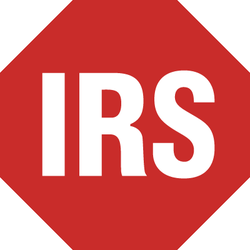IRS Discounts and Citizen's Desires
IRS Discounts and Citizen's Desires - An individual who needs an arrival of the surplus sum paid by him needs to petition for an arrival claim.A central government office Interior Income Administration (IRS), screens the assessment discounts.
Recording charges on time is the thing that mindful natives do. Be that as it may, in the US, citizens who pay more than the genuine assessment obligation are qualified for IRS discounts.
Assessment discounts are checked by the Interior Income Administration (IRS), a government organization. An individual who needs an arrival of the surplus sum paid by him needs to petition for an arrival guarantee. This procedure can be genuinely lumbering as it is trailed by careful check by IRS operators. They choose the genuinity of the case. On the off chance that the petitioner demonstrates that he has covered an over the top government obligation sum, he gets a discount.
What Happens When the IRS Discount Sum Contrasts from One's Desire?
The IRS discount sum is either less or more than what one will in general anticipate. You can generally hold up before you encash it. Sit tight for a notice that clarifies the distinction and adhere to the directions referenced on it.
In the event that the IRS discounts are not exactly your desire, you can encash the check. Be that as it may, you have the privilege to look for a clarification for that sum. In the event that you don't get a notice clarifying the sum, you can call 800-829-1040. Visiting the IRS site at irs.gov may likewise be a decent alternative to consider. On the off chance that it is built up that IRS owes you some discount, you will get a check which will cover the distinction.
Would one be able to Check The Status Of The IRS Discount?
Indeed, it is conceivable to check the status and measure of the IRS discounts in the accompanying ways :
Through Web : This is the speediest and the easiest strategy for checking the status of the present year's IRS discounts. Simply sign on to irs.gov and tap on ''where's my discount? connect. The IRS site will request your government managed savings number, documenting status and correct entire dollar discount that shows up on your arrival.
Through telephone : The number for IRS hotline is 800-829-1954. You can make an approach this number to check the IRS discount sum. Here as well, one needs to give similar subtleties.
Note that IRS discounts are liable to US charge codes. Monitoring every one of the laws may end up being an unwieldy errand. Be that as it may, an expert will have avant-garde comprehension of the laws.





